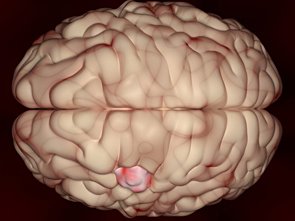A Meningioma is a type of tumor that arises from the meninges, which are the layers of tissue covering the brain and spinal cord. These tumors are typically slow-growing and benign (non-cancerous) in most cases.
Types of Meningiomas:
- Benign Meningiomas: The vast majority of meningiomas are benign, meaning they do not invade nearby tissues or spread to other parts of the body.
- Atypical Meningiomas: These tumors have more aggressive features than benign meningiomas but are still considered low-grade.
- Malignant Meningiomas: Rarely, meningiomas can exhibit malignant features and invade nearby tissues or recur after treatment.
Causes and Risk Factors:
- Unknown Cause: The exact cause of meningiomas is often not known.
- Genetic Factors: Some genetic conditions (e.g., neurofibromatosis type 2) increase the risk of developing meningiomas.
Symptoms:
- Variable Symptoms: Depend on the size and location of the tumor.
- Common Symptoms:
- Headaches
- Seizures
- Changes in vision or hearing
- Weakness or numbness in the extremities
- Personality changes or cognitive deficits
Diagnosis:
- Imaging: MRI (Magnetic Resonance Imaging) is the preferred imaging modality to visualize meningiomas and assess their size, location, and relation to nearby structures.
- Biopsy: In some cases, a biopsy may be performed to obtain a tissue sample for definitive diagnosis, especially if the MRI findings are inconclusive or suggest a more aggressive tumor.
Treatment Options:
- Observation: Small, asymptomatic meningiomas may be monitored with periodic imaging to assess for growth.
- Surgery: The main treatment for meningiomas involves surgical removal (resection) of the tumor. The goal is to remove as much of the tumor as possible while preserving neurological function.
- Radiation Therapy: Used as an adjuvant treatment after surgery to treat residual tumor or in cases where surgery is not feasible. Techniques include stereotactic radiosurgery (e.g., Gamma Knife) or conventional radiation therapy.
- Medical Therapy: Some meningiomas may express hormone receptors, and hormonal therapy (e.g., somatostatin analogs) may be considered in select cases.
Prognosis:
- Generally Favorable: Benign meningiomas typically have a good prognosis after surgical removal.
- Recurrence: There is a risk of recurrence, especially with atypical or malignant meningiomas.
- Monitoring: Long-term monitoring with periodic imaging is important to detect recurrence or growth.
Management and Follow-Up:
- Multidisciplinary Approach: Treatment planning involves collaboration between neurosurgeons, radiation oncologists, neurologists, and other specialists.
- Supportive Care: Addressing symptoms and providing supportive care to manage any neurological deficits.
Meningiomas are a diverse group of tumors that require individualized treatment based on factors such as tumor size, location, and grade. Advances in imaging, surgical techniques, and radiation therapy have improved outcomes for patients with meningiomas, with an emphasis on preserving neurological function and quality of life.
